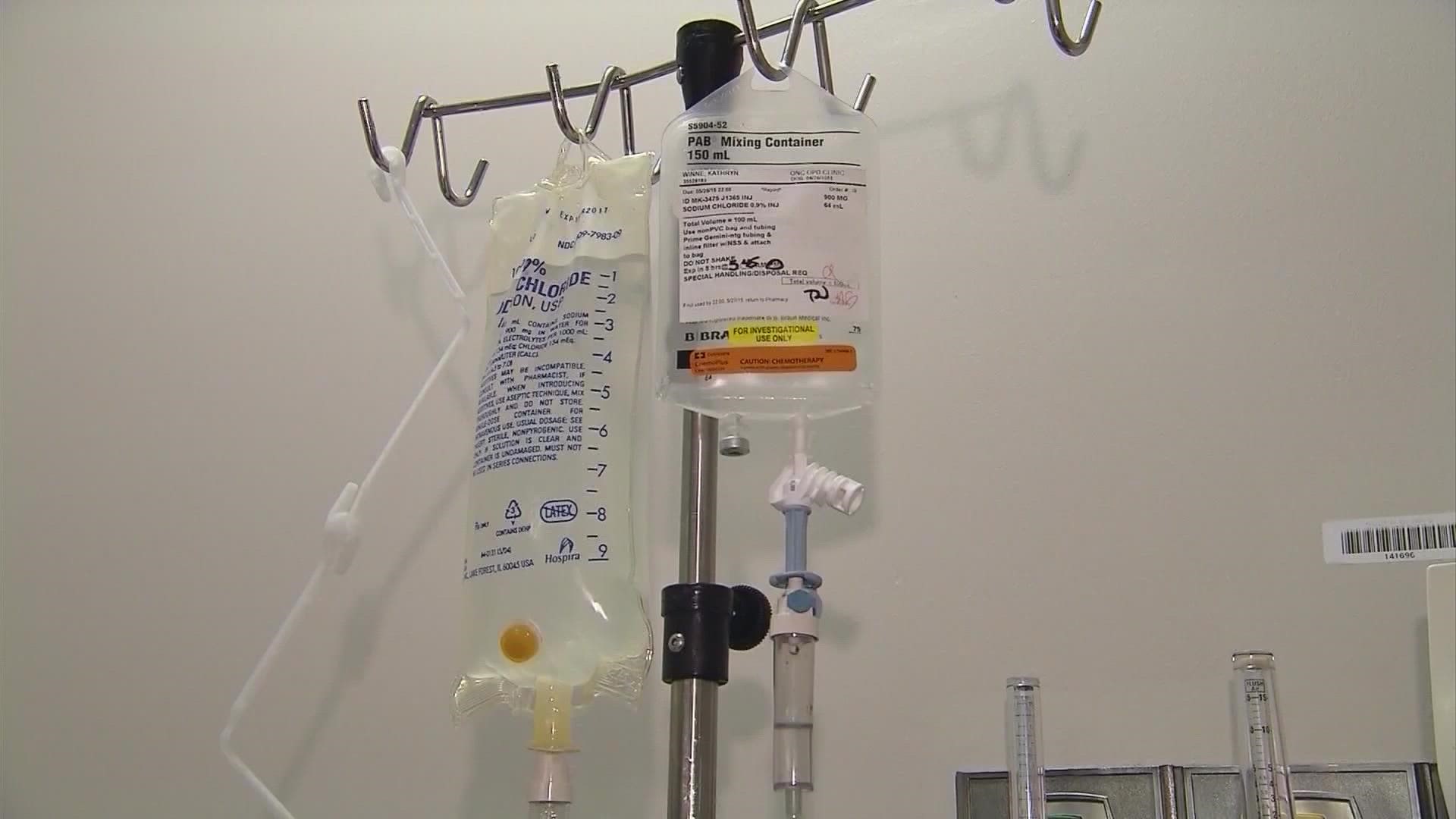COLUMBUS, Ohio — Monoclonal antibodies have been a powerful tool in the fight against COVID-19, especially to keep people who get sick from having to go to the hospital.
Omicron, however, may evade some types of this treatment.
Infectious disease experts are sharing new findings that two of three types used here in central Ohio don't work against Omicron.
A monoclonal antibody is a lab-developed protein used to mimic or enhance your natural immune response. It attaches to the spike protein on the virus -- blocking it from invading your cells.
There are three types -- and the two that are used in central Ohio are produced by Eli Lilly and Regeneron.
Infectious disease experts, including Dr. Joseph Gastaldo from OhioHealth, say it appears those two do not work against the omicron variant.
Dr. Gastaldo says it's a treatment some unvaccinated people have come to depend on.
"Based on the weekly variant, the CDC reports roughly 80-85% of COVID circulating in the Midwest is the omicron variant,” Dr. Gastaldo explained. “And what that really means is that in most circumstances, patients who are getting monoclonal antibodies are not being given a monoclonal antibody to have activity against the Omicron variants.”
He said the third version of monoclonal therapy produced by GlaxoSmithKline PLC and Vir Biotechnology Inc. appears to be effective against omicron in early lab studies.
Dr. Gastaldo said he is working with his counterparts at other hospitals to see when Glaxo will arrive in central Ohio. He said right now they don’t know how much they will get or how much will be delivered.
“Based on our current burn rate here at OhioHealth, if we would only rely on the Glaxo product, which that which does have activity against the Omicron variants, our supplies only going to be for four to five days,” he said.
Dr. Gastaldo said there is something else promising in the pipeline.
Any day now, some health systems here will receive the AstraZeneca version.
It's said to be different in two ways: it's a shot instead of a transfusion and it'll be used as a preventative measure.
People with weakened immune systems, who just underwent a transplant, for example, will be among the first to receive it.

